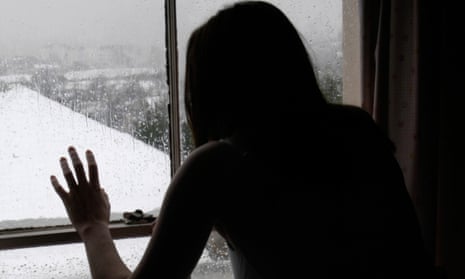Something strange happened to me last year. On five or six occasions, I needed the money for something – a plane ticket to see someone I love, a daunting credit card bill, a vital item that needed replacing – and I’d think, “If only I could afford this, everything would work out.” Then, within a day or two, I’d be offered a piece of work that would pay that exact amount to the pound, or I’d be able to travel with work to exactly the place I wanted to go. It was a lucky and auspicious 12 months.
Fast forward to this cold, hard January, and nothing is unbearably bad, but I wouldn’t quite say anything is going especially “well” either. Living and working alone, when your major social interaction of the day is bitching about your problems with the nicest man at the coffee shop who always gives you extra stamps on your loyalty card, disappointments can begin to cut rather than scratch.
All of which is to say that I am the ideal candidate for the latest social media trend promising to improve your life: “lucky girl syndrome”. In reality, it’s not new at all – it’s generation Z girls repackaging the new age concept of manifestation, in which you think about something you want as if you already have it or have achieved it, and then it supposedly happens. “Great things are always happening to me,” you say, and then great things happen to you. In a way, it’s similar to what I was doing last year without realising it. And it’s not surprising that videos about this have gone viral on TikTok at the beginning of 2023 – in a month defined by bleak weather and the feeling that the year hasn’t yet taken shape.
Most of the videos are uncommonly smug. A lucky woman tells an out-there tale of how she and her boyfriend manifested a house (they had money for a deposit, and put it down on a house). Her advice is that we should “be fucking delusional and believe in yourself”. I can be delusional – I’m a romantic and a writer, two of the most mad and unrealistic things to be – so I decide to give it a try in a bid for a lucky 2023.
I’m well-versed in manifestation. In my teens and 20s I used to make “vision boards” and try manifesting specific things. I’m not sure how deeply I believed in it, but I do think that manifestation can work, in its way – not through mystical forces, but because it means you’ll be looking for the positives, you’ll notice them more and maybe even begin to shape your life around the good things within it. Science agrees: people who have clear goals are more likely to achieve them. Being optimistic: generally good for you.
But manifestation is probably also damaging – it promotes a relentless focus on the self and self-actualisation. When people are seeking luck, it’s luck for money, fame and romantic relationships, for me, myself and I. It joins a host of spiritual activities that younger generations are reinventing as a form of “wellness” – we now have random teenagers and girls in their early 20s with handles such as “hotdopepriestess” who read Rhonda Byrne’s The Secret and are now doing tarot card readings and selling workshops on how to manifest wealth. These are the same businesses that people within the spiritual community have run for decades but they are now marketed by and to a younger generation. Perhaps this was the natural progression for the wellness industry in a declining economy: lacking the financial means to make ourselves happy, we’re now turning to the supernatural for help.
As I tell myself that I am a lucky girl, I too begin to feel smug. It’s simple, low effort – I don’t even have to think about what exactly I want, it’s just great things. I hope that if I keep saying it to myself something notable will happen between the time I am commissioned to write about the syndrome and filing the article. The hours are passing and nothing. Maybe I will manifest missing my deadline. I look at the view outside, across a purple sky and then through some usual windows to see the same people I always see, fussing about their families. There’s a couple hugging in their kitchen. A shadow of loneliness falls across my chest and I think how awful England feels at this time of year. But: great things are always happening to me.
So I message a friend and we joke about the mantra that great things are always happening to me and I check my email. A piece of work has been confirmed, which means I will be able to leave the country imminently. What if another strange, lucky year really could happen?
Hannah Ewens is features editor at Vice UK and author of Fangirls: Scenes From Modern Music Culture
Do you have an opinion on the issues raised in this article? If you would like to submit a response of up to 300 words by email to be considered for publication in our letters section, please click here.

